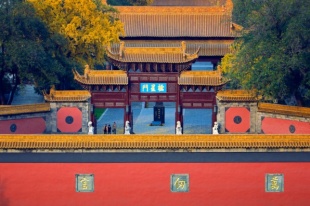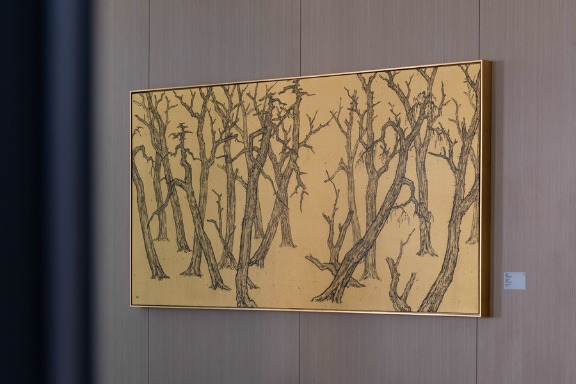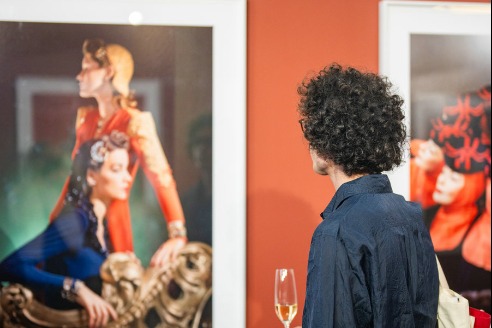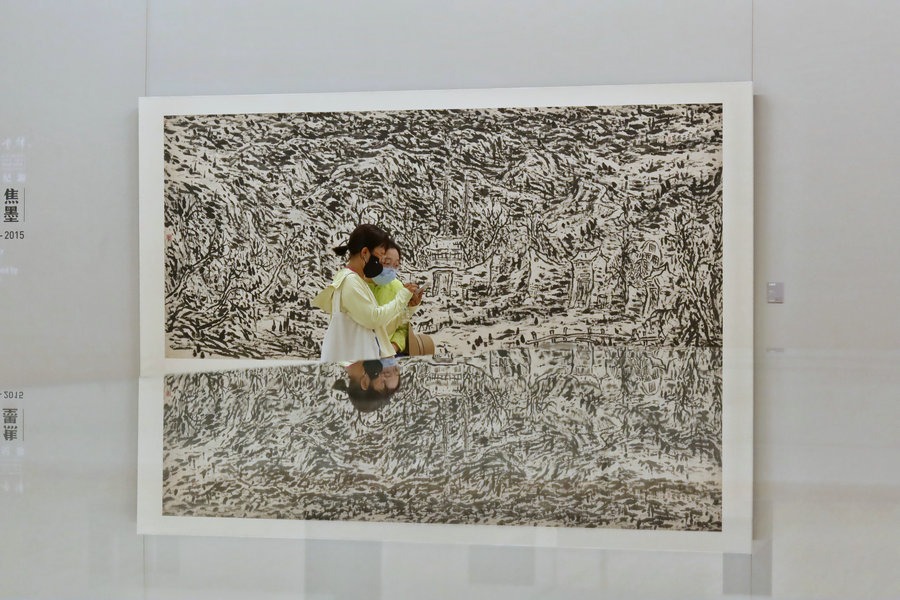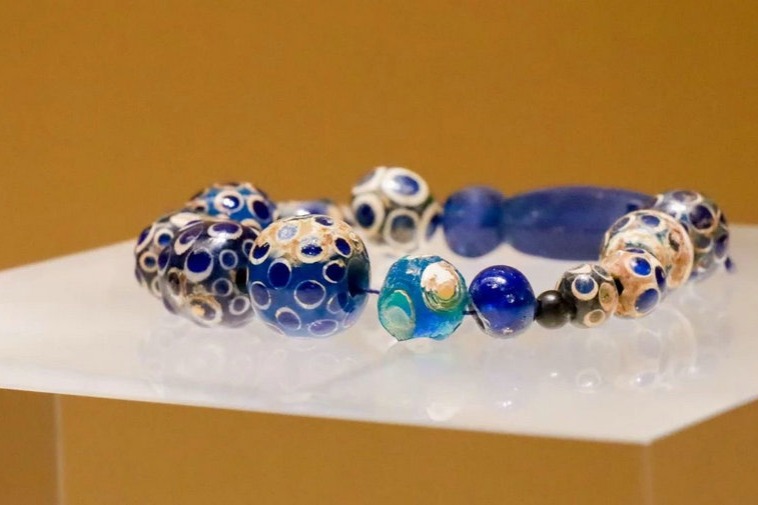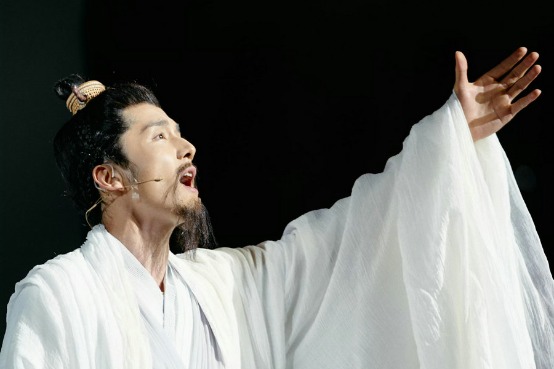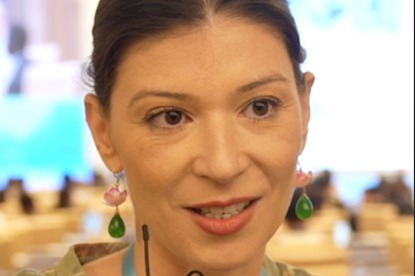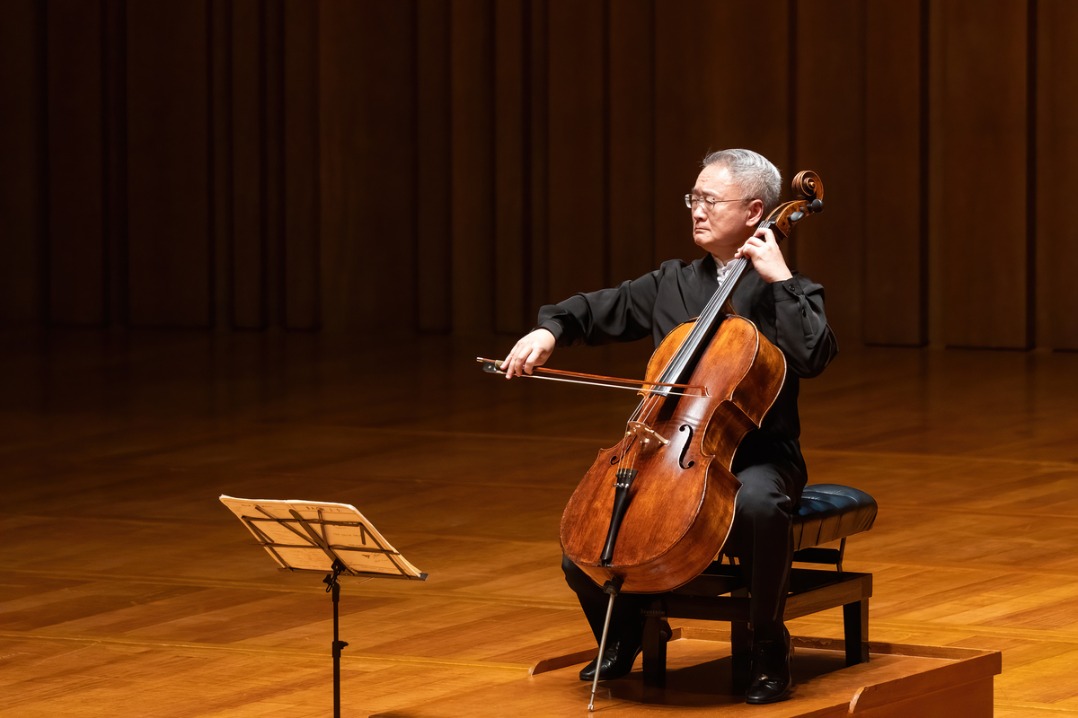Temple and Cemetery of Confucius and the Kong Family Mansion in Qufu

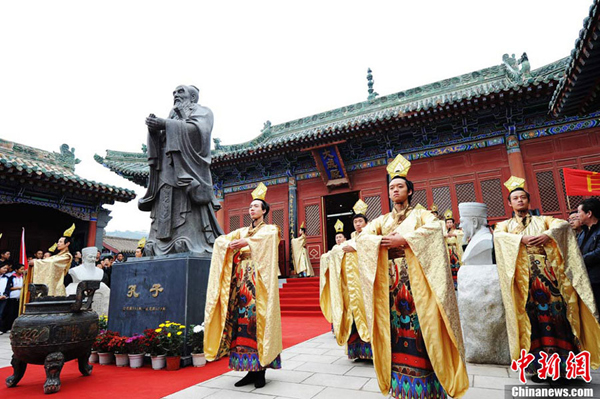
Category of Site: Cultural site
Brief Introduction
Located in Qufu, Shandong province, these three Confucian sites were built in 478 BC to commemorate Confucius, the great philosopher, politician and educator of China. The Temple and Cemetery of Confucius and the Kong Family Mansion in Qufu have maintained their artistic and historic character.
Covering 140,000 square meters, the site boasts over 100 halls, towers, pavilions and other buildings clustered around nine courtyards. There also are the Apricot Altar on the spot where Confucius had his school, the famous cypress he planted and over 1,000 stone tablets.
Located north of Qufu, the Confucius Forest is where the tombs of Confucius and many of his descendants are found. Zi Gong, one of Confucius' leading disciples, started planting trees at his master's tomb, and now there are over 10,000 trees here. Kong Shangren, author of the drama, The Peach Blossom Fan, is buried here too.
It was added to the list in December 1994.
Cultural Heritage
The Temple of Confucius in Qufu has been in use for over 2,400 years. It is the central place for worshippers of Confucius from all over the world and model to over 2,000 Confucius temples distributed in China, Korea, Japan, Vietnam, Indonesia, Singapore, the United States and other places.
The Cemetery of the Kong family, also with a history of over 2,400 years, is one of the oldest cemeteries in the world.
The Family Mansion of Confucius is the largest, most typical and best-preserved special building complex for both official and private use in China. Its owner, the Kong family, is the most time-honored noble family of China, with peerage titles dating back over 2,100 years.
The historic, scientific and artistic value of the Temple, Family Cemetery and Family Mansion of Confucius lie in their impressive collection of cultural relics. In the field of architecture, more than 300 buildings erected through the Jin, Yuan, Ming and Qing dynasties reflect the characteristics of those different eras. Over 1,000 Han Dynasty stone reliefs, inscribed figures of Confucius and dragon poles illustrate the evolution of the art of stone inscription. Over 5,000 inscribed tablets passed down since the Western Han Dynasty provide a precious showcase of Chinese calligraph, as well as valuable material for the study of ancient China's politics, ideology, economy, culture and arts. Some 100,000 tombs bear concrete testimony to China's ancient burial customs.
More than 17,000 ancient and precious trees stand here as living material for research into ancient phenology, meteorology and bionomics. There are also more than 100,000 items of collected relics, among which the most famous are rare genuine costumes of the Yuan and Ming dynasties and portraits of Confucius, Lord Yansheng and their wives, as well as original ceremonial utensils. Researchers into the study of history, especially the economic history of the Ming and Qing dynasties, cannot miss the 300,000 original files and documents of those times, which comprise the largest private collection of ancient files in China.
Confucius and Confucianism
Confucius (551-479 BC) was China's most famous philosopher, political theorist, statesman and educator. He was born in the State of Lu towards the end of the Spring and Autumn period prior to the Warring States, an age of much conflict and unrest. He spent his whole life in the pursuit of learning (xue) and truth, and practiced a self-disciplined life, exerting a far-reaching influence on the mentality of the Chinese people and many other peoples around the world.
Confucius sought learning extensively, from the six arts (ritual, music, archery, charioteering, calligraphy and arithmetic) to the thoughts of Laozi, or Lao-Tzu, founder of Taoism. He held several posts, from finance officer to minister of justice. He traveled to many states to spread his political thought, and set up and presided over the earliest Chinese school open to all classes of people. He was the chief compiler and editor of many historical records, as well as some of the most influential books of Chinese history, including The Book of Songs (Shi-jing) and The Spring and Autumn Annals (Chun-qiu). His own thoughts are collected in the Analects of Confucius (Lun-yu), complied by his disciples.
Confucius thought, which centered on ren (humanity or benevolence), was mostly a humanistic social ethic. In politics, he advocated close observance of social order modeled on the family and consolidated in forms of ritual, along with the universal practice of benevolence; in teaching, he attached great importance to differentiated methodology for different students, self-motivation and the combination of learning, thinking and practicing; in personality, he stressed the virtue of the gentleman (Jun-zi) that embodied respectfulness, generosity, sense of honor, diligence, self-cultivation and social commitment. Many of Confucius' sayings have become well-known worldwide, such as: "Isn't it a great delight to have friends coming from afar"? or "Do not do unto others what you would not want others to do unto you".
Cuisine of the Kong Family Mansion
Along with the spread of Confucianism through the ages, gastronomy in the Kong Family Mansion also prospered. By the contributions of top-class cooks and a great variety of Chinese foods, the cuisine of the Kong Family Mansion stands out as a unique food style, featuring a special appearance, smell, taste, shape and name, as well as ingredients.
There are five major banquets in the Kong family. The birthday banquet is a regular one. A special record is always kept of the birthdays of all major family members. At wedding banquets, designed for the marriages of direct descendants of Confucius, the center of the table is decorated with the character xi (happiness), with plates arranged in the shape of double happiness and dishes served with such names as Peach Blossom Shrimp, Lovebird Chicken, Phoenix Sharkskin and Going to a High Post with a Son. Celebration banquets usually feature an atmosphere of celebration with auspiciously-named dishes, such as Lucky Chicken and Happiness Balls.


